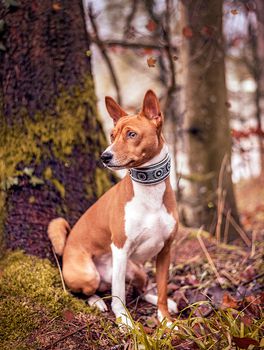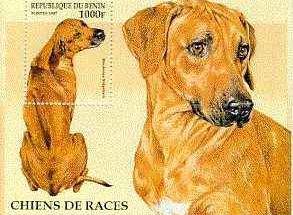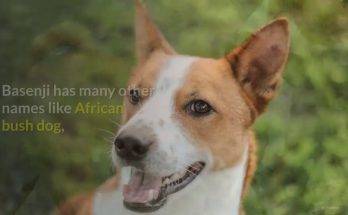Are you a passionate dog lover in search of an extraordinary four-legged companion? Look no further than the Basenji breed! Known for their distinctive appearance, intelligent nature, and intriguing vocalizations, Basenjis have captured the hearts of many dog enthusiasts worldwide. In this article, we will delve into the Basenji breed standard, exploring the characteristics, temperament, history, and care requirements that make these dogs truly one-of-a-kind. So, let’s embark on this journey to uncover the wonders of the Basenji breed!
History of the Basenji Breed

Discovering the roots of the Basenji breed and its journey through time.
The Basenji breed traces its origins back thousands of years to Central Africa, where they were highly regarded as hunting dogs by tribes such as the Azande and Mangbetu. These ancient dogs were revered for their exceptional hunting skills, agility, and keen senses. The discovery of Basenji-like dogs depicted in ancient Egyptian artwork further solidifies their historical significance.
After being introduced to the Western world through exploration and trade routes, Basenjis gained popularity among dog enthusiasts due to their unique traits. They were officially recognized by the American Kennel Club (AKC) in 1943, marking a significant milestone for the breed and establishing the Basenji breed standard.
Physical Characteristics

Unraveling the physical attributes that define the Basenji breed standard.
Basenjis are medium-sized dogs with a muscular build and elegant posture. They possess a distinctive head shape characterized by a broad forehead, almond-shaped eyes, and erect ears that give them an alert and intelligent expression. One of their most notable features is their wrinkled forehead, which adds to their charm and uniqueness.
Their short, dense coat comes in various colors, including chestnut red, black, tricolor, or brindle. Additionally, Basenjis have a characteristic white blaze on their chest and white markings on their feet. Their short tails curl tightly over their backs, adding a touch of gracefulness to their overall appearance.
Temperament and Personality

Exploring the Basenji’s temperament and the ideal environment for this breed.
Basenjis are renowned for their independent and spirited nature. While they possess an endearing affection for their human companions, they also display a streak of self-reliance and an inclination towards mischief. This breed is highly intelligent, curious, and always ready for an adventure, making them an ideal choice for active individuals or families with older children.
It’s crucial to note that Basenjis have a strong prey drive, which stems from their roots as hunting dogs. This trait requires careful management, particularly when it comes to interactions with smaller animals. Early socialization and consistent training are essential to ensure a well-rounded and balanced Basenji.
Exercise and Training Requirements

Unleashing the energy needs and mental stimulation required by the Basenji.
As an athletic breed, Basenjis thrive in an environment that provides regular exercise and mental stimulation. Daily walks, engaging playtime sessions, and opportunities to explore their surroundings are vital to keep them physically fit and mentally stimulated. However, it’s important to provide a secure and fenced area for your Basenji, as they are known escape artists who can quickly find their way out if not properly contained.
Training a Basenji can be an exciting challenge due to their independent and sometimes stubborn nature. Positive reinforcement techniques, such as rewards and praise, work best when teaching them new commands and behaviors. Consistency, patience, and firm but gentle guidance are key to successfully shaping their behavior and ensuring a well-behaved Basenji.
Grooming and Health Care

Unveiling the grooming needs and health considerations for Basenjis.
In terms of grooming, Basenjis are relatively low-maintenance. Their short coat requires minimal brushing to remove loose hair and maintain its sleek appearance. However, during shedding seasons, more frequent brushing may be necessary to manage the amount of hair in your home.
Basenjis are generally healthy dogs, but like any breed, they are predisposed to certain health conditions. Fanconi Syndrome, an inherited kidney disorder, is a concern within the Basenji breed. Regular veterinary check-ups, a balanced diet, and proper exercise can help ensure the overall well-being and longevity of your beloved Basenji.
Conclusion
The Basenji breed standard encompasses a captivating blend of history, physical attributes, temperament, and care requirements that make this breed truly exceptional. Whether you’re looking for a loyal companion or an active partner for various adventures, the Basenji’s intelligence, independence, and unique vocalizations will undoubtedly make them a fascinating addition to your life. Remember to provide them with ample exerciseand mental stimulation, as well as consistent training and socialization to nurture their well-rounded personality. With proper care and attention, the Basenji breed can thrive and bring joy to your home.
In conclusion, the Basenji breed standard encapsulates a remarkable combination of history, physical traits, temperament, and care guidelines that define these fascinating dogs. From their ancient African origins to their recognition in the Western world, Basenjis have captivated dog enthusiasts with their distinctive appearance and lively personality. Understanding the Basenji breed standard is essential for anyone considering adding this breed to their family, as it provides valuable insights into their unique needs and characteristics.
If you’re seeking a loyal, intelligent, and adventurous canine companion, the Basenji might be the perfect match for you. Embrace the Basenji breed standard and embark on an exciting journey filled with love, companionship, and unforgettable moments with this extraordinary breed.




